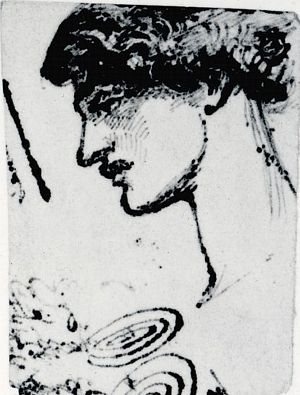There will your heart be also.

Then there was the night I stopped on Trinity Bridge without anyone. Stopped because there were the geese again, some coming single-file toward others clustered tightly around a floating light raft of willow leaves. And clacking together with their great black beaks, making a sound like balsawood ice cream spoons snapping, like wooden noisemakers making the same noise over and over. It was 4:30 and dark. I flattened myself to the bridge's stone and peered down at the geese, intent on pulling whatever they could out of those floating leaves. Down the river, goose after goose arrived at the bank and falumphed into the water and followed the others to the leaves. The full and finished geese peeled away, paddled upriver.
It is difficult for me to remember how the current flows. I can only grasp it by thinking of places very far away.
An older man who'd fairly trotted out of Trinity came onto the bridge. What is it, he said, trying to see what I was seeing. The geese, I said, I'm listening to the geese. I pointed. What are they doing, he said. I think they're eating out of those willow leaves. How do they see anything in the dark, he said. He watched for a few seconds more, then trotted away down the dark avenue.
I will be having the birds all to myself for quite some time, I think.








































